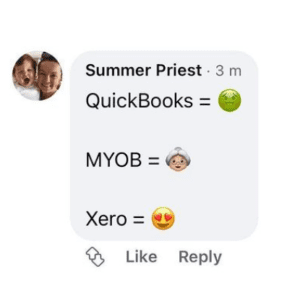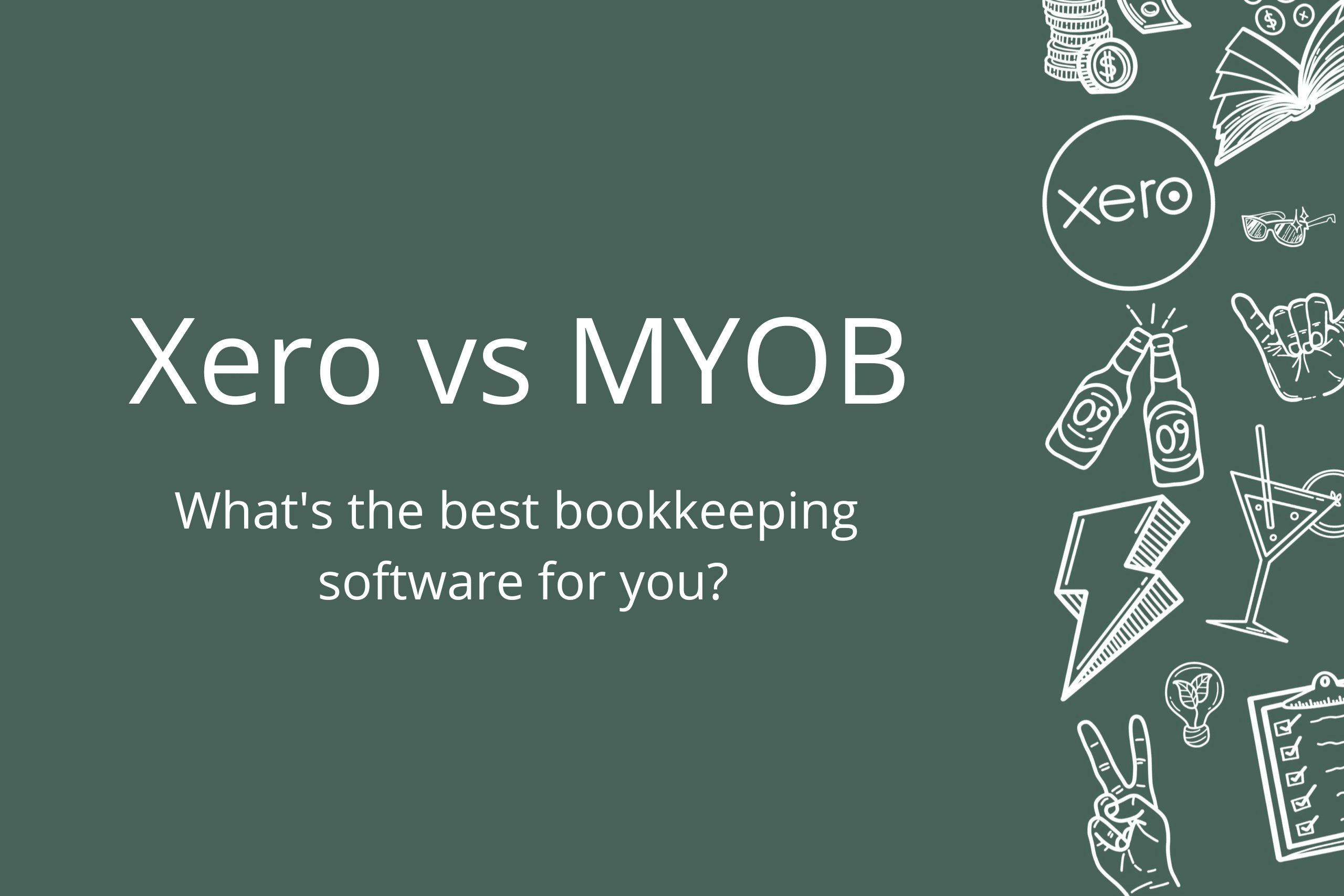It’s not going to take you long to realise (or take me long to say), that when it comes to the battle of the best bookkeeping software, Xero is going to win for us. Every. Single. Time.
Why? Well, I reckon this cheeky snapshot from our group chat summarises my thoughts pretty well.

We’re Xero Bookkeepers because we hand-on-heart believe Xero is the best option out there.
But, because we don’t wanna come across as totally biased, let’s make it a fair fight. Welcome to our very own Xero vs MYOB showdown. Let the comparisons begin!
Xero vs MYOB: Differences between functions and features
When it comes to the differences between Xero and MYOB, my mind automatically likens it to Apple and Samsung. Both brands have their devoted users, but it can’t be denied that Apple is always one step ahead of the pack.
They’re innovators and the world is constantly looking to them for the next big thing. Now, I’ll be the first to say that bookkeeping software isn’t *exactly* in the same realm as Steve Jobs’ tech baby, but my point remains.
Xero was created because there was a gap in the market. MYOB was the go-to bookkeeping software since its inception in the early 1990s, but it came with problems, too. It was clunky, hard to use and made you go the long way to solve problems.
For example, back when I used to use MYOB (not by choice) if I wanted to edit an employee’s payroll, I’d have to delete the whole thing and start again. Admittedly, it’s been a while since I’ve used the software, but my sources tell me functionality is still lagging behind.
With Xero leading the charge, it’s forced MYOB to catch up with its competitor. So, in terms of features, the two are now very comparable, but there are still some major differences.

1. Security and backups
MYOB allows you to download your data so you can have backups on your computer, but with the cloud, backups aren’t really necessary. If you decide to cancel your Xero subscription, they’ll keep all your data for up to seven years. That means you can restart your subscription and bam, everything’s exactly where you left it.
As for security, because Xero is cloud-based software, you’d kinda expect their security to be up-to-scratch. And it is.
When you log in, you’ll be met with multi-factor authentication (an alert on your phone making sure it’s really you). Beyond that, you can rest assured that your data is being safely stored online (in multiple locations, actually) and you get to control who has access to it.
2. You can only do one thing at a time in MYOB
This may not seem like a biggie, but trust me, it is. When you’re using Xero you can open as many browser tabs and complete as many tasks as your heart desires. With MYOB, you’re stuck doing one thing at a time.
And it has a tendency to freeze or have long wait times (up to 45 seconds to generate a report), so you’re forced to wait for the process to finish before you can do anything else.
The key benefits of Xero
1. Its cloud-based software
Managing your books can already feel like a chore. So, why not make it as convenient as hecking possible?
2. It shows user history (and you can leave notes)
This feature isn’t highlighted enough and I’m a total fangirl for it. When you’re working in a team and across multiple clients, being able to see user history and who-changed-what is such a game-changer. You can also leave each other notes – which is pretty killer for internal communication.
3. It integrates with heaps of apps
There are a lot of good things about Xero, but one of the GREAT things is how easily it integrates with apps. Xero has an open API, which means it can share your data with heaps of other programs you already use in your business like Buildertrend, Aroflo, Simpro, and Dubsado (to name just a few).
4. It handles payroll deets automatically
How annoying is sending off paperwork to the ATO? With Xero, payroll details get sent to the ATO (no paperwork in sight).
Tax, pay and super are all automated – we love anything that makes our job easier.
Reckon Xero could be the software for you? Good thing we’re experts in the field. If you need a hand getting set up or moving across, give us a yell.

